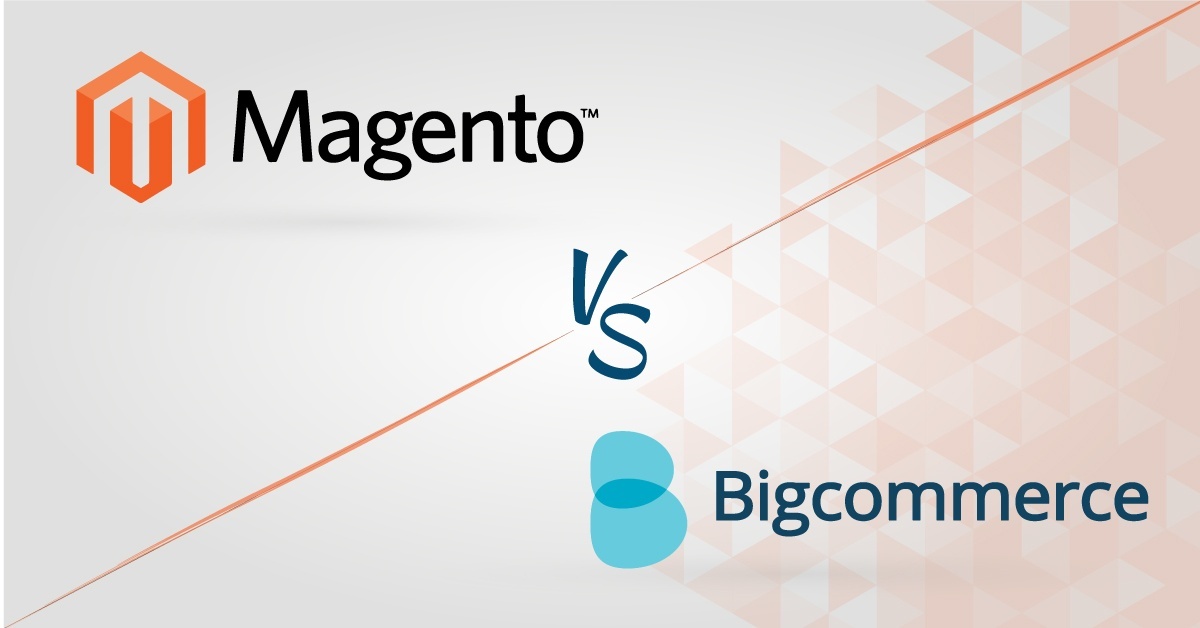Continuing in our series of Why Magento Rocks, here is Part 4 showcasing what makes the Magento eCommerce platform superior to Big Commerce. You can find Part 1, Part 2 and Part 3 by click on the links here.
About BigCommerce
BigCommerce is an all-in-one ecommerce solution that directly competes with Shopify. As with all “Instant ecommerce” solutions, BigCommerce is severely limited in that it is only useful for a specific set of store owners, and specific circumstances. Your store must fit the basic mold, or you will have problems.
Up-front pricing
BigCommerce and other, similar turn-key solutions use a problematic tiered pricing method. A monthly bill that covers everything may seem simple enough, but with solutions like BigCommerce, monthly payments tend to be the base charge with many additional charges. Bigcommerce pricing can actually be broken down into three separate “Fees”:
- Monthly pricing: This is the fee you see upfront, and is usually what you see advertised around the internet.
- Transaction fees: This is a fee that is usually mentioned in smaller print. This is basically a percentage of your overall sales. This is BigCommerce taking a cut of your business.
- 3rd Party fees: These are fees that a business owner must pay to access specific apps created by developers. Although Magento offers the ability to buy third party extensions as well, Magento offers more out-of-the-box functionality than BigCommerce. This means less money and time spent on third-party integrations.
About transaction fees
A transaction fee for larger-scale businesses adds up quickly. When using a solution like BigCommerce, you are essentially entering a partnership with them. They provide the storefront, while you provide a percentage of your business. For a small startup, or someone that wants to try their hand at ecommerce, this could be a good deal, but for an established ecommerce business looking to expand, it is not. The partnership in regards to a larger business is more of a one-sided deal than a mutually beneficial relationship. BigCommerce takes a portion of your business and only offers you a basic storefront with limited functionality and customization.
Magento is a solution that puts the control of the store in the hands of the client. There is no need for a partner, because not only do you own the business, but you own the storefront as well.
3rd Party Applications
Magento’s large library of extensions makes it a powerful platform with almost limitless abilities. Not only are there extensions for almost everything you may need, but Magento’s ability to seamlessly integrate extensions allows developers to create custom extensions to fit virtually any of their client’s needs. In regards to extensions, BigCommerce is severely lacking. Although all turn-key solutions fall short in 3rd party apps compared to Magento, BigCommerce I would say comes up short the most. Its app store is weakly populated and is not even comparable to Shopify. This means that you do not get the same out-of-the-box capabilities that Magento has, and you also do not even have the ability to buy them.
Locked in
BigCommerce is no different than other turnkey solutions in that it does not allow easy migration away from the platform. This is an issue in many obvious ways, and severely limits the business owner. As a business grows, a client may want to use a different solution that can cater to newly developed needs, or changed industry standards. With a solution like Magento, a business owner would be able to access the database, and migrate data structures other than simple product lists. BigCommerce is inflexible, and makes migration very, very difficult. If a business owner starts with BigCommerce, and they want to move on to a different solution they will need to start over again from scratch.
Inventory Tracking
Product management and inventory are obviously essential to any ecommerce solution. Bigcommerce, unlike other Turn-Key solutions, is severely lacking in this functionality. Instead of having a dedicated area for product management, each product has to be managed separately on its own specific product page. When working on a large scale this is a time-consuming system that will severely impact productivity.
Broken Updates
When using a platform like Magento, a broken update or patch could mean just reverting to an earlier software version until the problem is solved. This may not be optimal, but in a pinch, you can use this to make sure your site has consistent uptime. However, BigCommerce, like all cloud solutions, will apply patches and updates sitewide. This means that you have no choice but to use the update, even if it breaks your store. As a cloud software user, you have no ability to revert or wait until a secure version of an update comes out, rather updates are forced on you, sometimes without prior warning. This is an issue that can, and does lead to a host of issues including but not limited to stores going down.
For many businesses, finding suitable ecommerce platforms is an essential component of maintaining continuous success. The above illustrates that Magento has much more to offer businesses for those seeking the very best in ecommerce solutions.


Leave a Reply
You must be logged in to post a comment.